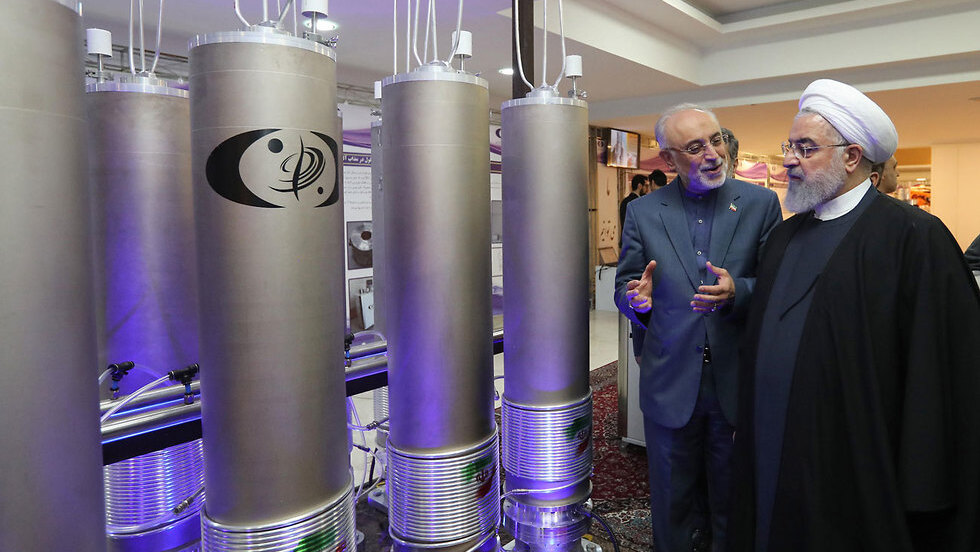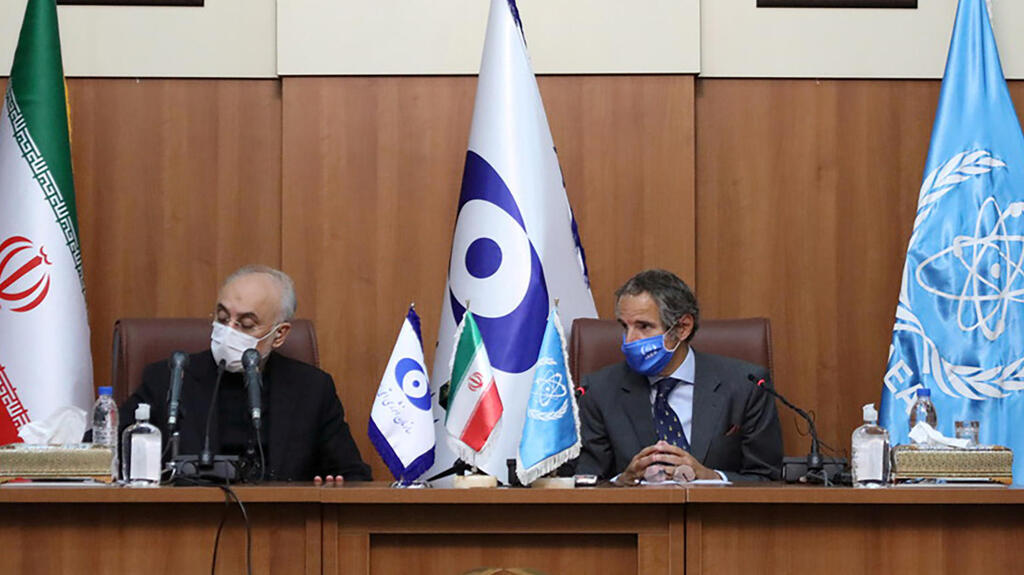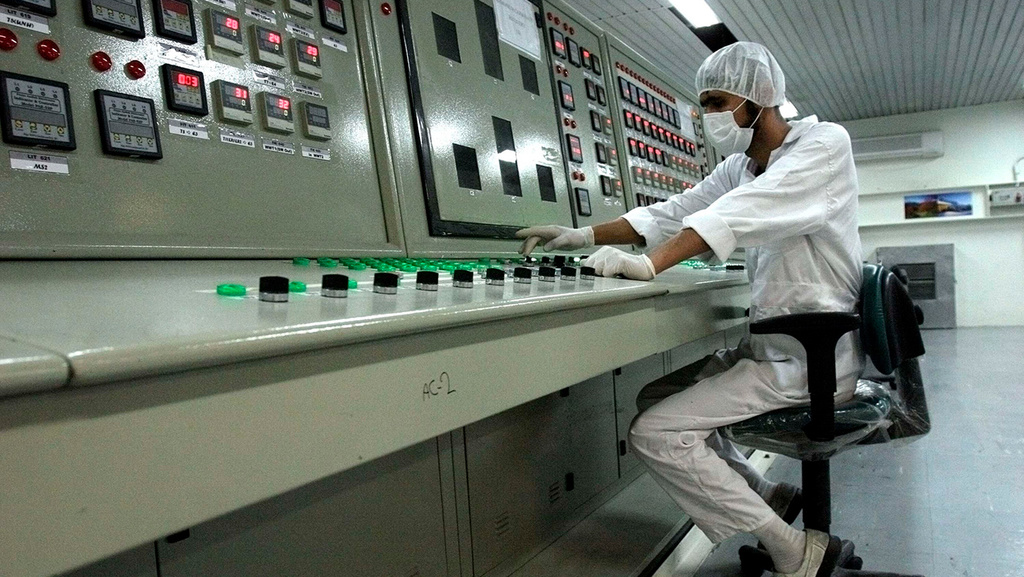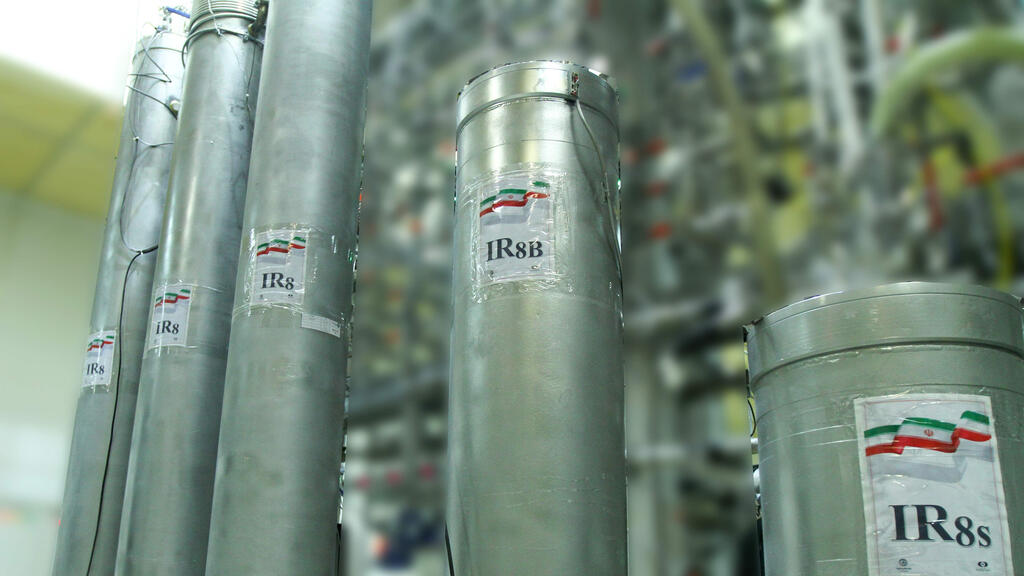Foreign Minister Gabi Ashkenazi warned on Wednesday that Iran is trying to hamper the International Atomic Energy Agency's (IAEA) ability to oversee the development of its nuclear program, all while trying to undermine the stability in the Middle East.
Ashkenazi's remarks follow Tehran's announcement on Monday that intends to limit international access to its nuclear sites, as well as suspend certain safeguards put in place by the nuclear watchdog to verify the peaceful use of all nuclear material.
4 View gallery


Iran's President Hassan Rouhani visits one of the country's nuclear sites
(Photo: AFP)
“Iran’s policy is a declaration of intent as to its desire to continue to secretly develop nuclear capabilities," said Ashkenazi. "Israel sees this step as a threat, and it must not go by without a response. Israel will never allow Iran to control the capability to acquire a nuclear weapon."
Ashkenazi added that the suspension of IAEA oversight should “serve as a wakeup call to those who refrained until now from responding decisively and practically to Iran’s ongoing violations of its international obligations.”
Lior Haiat, the spokesman for the Foreign Ministry further warned that "Iran continues to stockpile enriched uranium, deceive and obfuscate its ambitions for a nuclear weapon."
“Iran’s harming of the special oversight mechanisms of its nuclear facilities and suspension of the additional implementation protocol are extreme steps that cross all red lines set out by the international community, and completely deplete the nuclear deal of its substance,” Haiat underscored.
Since 2019, Iran has continuously breached the 2015 Iranian nuclear deal in response to former U.S. President Donald Trump's withdrawal from the deal the previous year and Washington reimposing sanctions on the Islamic Republic.
These breaches include the enrichment of uranium of up to 20%, with Iran's Supreme Leader Ayatollah Ali Khamenei saying that Iran will increase enrichment up to 60% “based on the country’s needs," - despite the deal stating that Tehran can enrich uranium up to no more than 3.67%, as uranium metal can be used to make the core of an atom bomb.
4 View gallery


Head of Iran's Atomic Energy Organization Ali-Akbar Salehi and International Atomic Energy Agency (IAEA) Director-General Rafael Grossi
(Photo: Reuters)
The IAEA also recently found uranium residue in four previously undisclosed nuclear sites in Iran.
A report issued Tuesday by the IAEA Director-General Rafael Grossi stated that the UN’s watchdog is “deeply concerned” that Iran secretly kept “undeclared nuclear material” at an “undeclared location” and warned that Tehran continued to exceed “many limits” set by the 2015 nuclear deal.
The report determined that Iran executed undeclared activity with nuclear materials in at least four different sites, and did not report where the nuclear materials are currently located.
Grossi added in his report that Iran “needs to give answers” on the nuclear traces found these sites and said the process with Tehran “has not yielded positive results for now.”
Speaking to reporters on Tuesday, State Department Spokesperson Ned Price said that the U.S. is concerned that “Iran is moving in the wrong direction. It is moving further away from its nuclear constraints.”
“Our objective in all of this remains to seek an outcome in which Iran and the United States resume compliance with their commitments under the JCPOA. These steps by Iran, the steps that we have spoken to, that the Iranians have spoken to publicly, are clearly moving in the wrong direction,” he said.



